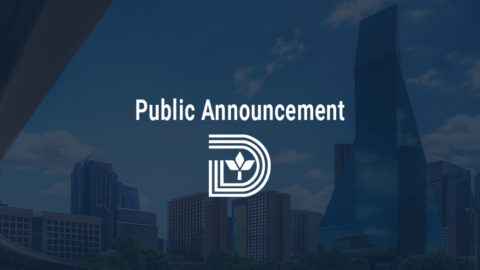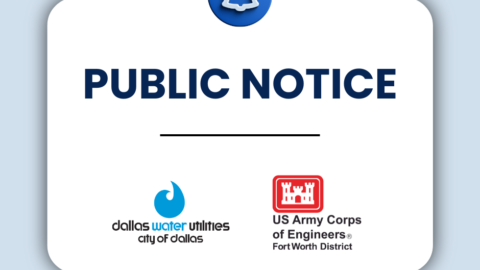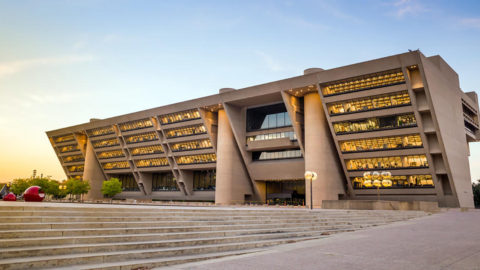City’s multi-department efforts address litter removal in open spaces and waterways
Multiple City of Dallas departments including Dallas Water Utilities (DWU), Code Compliance, Park and Recreation, Office of Homeless Solutions, City Marshals Office and DPD, among others, have partnered to provide support to homeless individuals and lead litter removal efforts inside creeks and channels, as well as large scale cleanups within public and private properties that are outside of routine maintenance.
The city’s multi-department working group recently conducted research to address stream trash prevention and collection. The team met regularly to identify, evaluate, and recommend technologies to reduce stream pollution based on location, stream size, outfalls, operational access and volume of observed floatable trash. Some technologies reviewed and considered by the team to assist in reducing litter entering water streams and removal of trash were Litter Booms, Litter Gitters, Bio Clean Automatic Retractable, Bio Clean Catch Basin, Bio Clean Connector Pipe Screen, Coanda Curb Inlet and Storm Trap Trash Removal. After a technical review, the consensus among the working team was to use Litter Boom devices as they were the most cost-effective and operational-friendly technology and support our efforts to proactively inspect and remove blockages in our storm drains and public creeks. The next step of the process is to identify additional stream locations for pilot opportunities and fund the addition of more Litter Boom devices in FY 2024-25 as funding becomes available.
In FY 2022-23, the city removed a total of 13,520 cubic yards of debris and floatables from gravity storm sewers, pressure sewers, levee maintenance, sump cleaning, trash racks, retention/detention basins and creek maintenance. The City of Dallas staff maintains and operates approximately 30 miles of levees and over 1,800 miles of storm drainage pipelines through regular inspection, cleaning, repair and emergency response. The city has approximately 700 miles of creeks and channels, of which 160 miles are owned by the city, as well as 39,000 acres of public and private floodplain. All stormwater in the city must make its way to the Trinity River through streets, pipes, creek, and channels by gravity flow or by being pumped through a series of street and large-scale pump stations.
As part of maintaining and operating the drainage system, staff routinely monitors, responds to and dispatches crews to address routine and emergency calls. During heavy rainfall, DWU flood control staff work around the clock to address blockages from debris, grass clippings and other impediments. Flooding can happen anywhere and DWU proactively addresses maintenance of the entire system, responds during heavy rainfall events and assesses areas post events.
Illegal dumping and littering can result in debris that ends up in storm drains, creeks or waterways. Residents are encouraged to report illegal dumping and litter by calling 3-1-1.
Additionally, the city has undertaken several efforts to increase public awareness around the importance of our open spaces and waterways. Public outreach campaigns including Every Litter Bit Counts, Reverse Litter, storm drain markings, and direct outreach at community events and in schools have been underway and will continue to move forward. It is important that we all work together as a community to keep our city clean.




